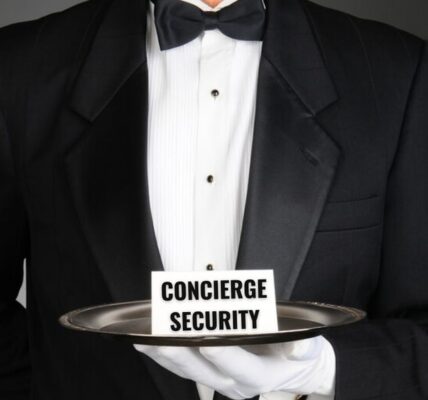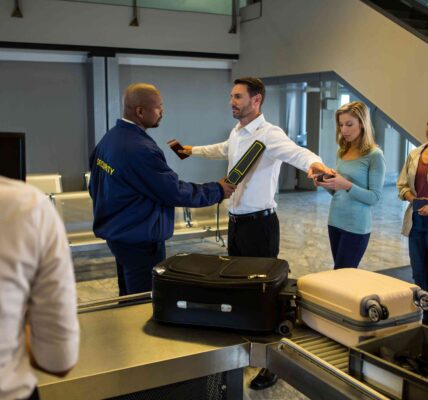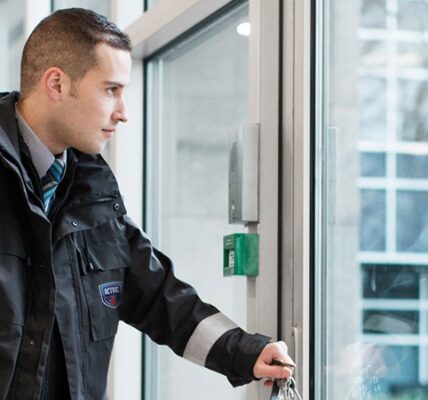Collaborative Efforts: The Relationship Between Mobile Patrol Security Guards and Law Enforcement
In the realm of security, collaboration between private security firms and law enforcement agencies is essential for ensuring the safety and protection of communities and businesses. Mobile patrol security guards play a crucial role in this collaborative effort, working hand-in-hand with law enforcement to deter crime, respond to incidents, and maintain order. This article explores the dynamic relationship between mobile patrol security guards and law enforcement, highlighting the benefits of cooperation and the strategies employed to enhance security effectiveness.
Understanding the Collaboration:
Mobile patrol security guards and law enforcement agencies share a common goal: to uphold public safety and protect property. While law enforcement agencies have primary responsibility for enforcing laws and investigating crimes, private security firms, including mobile patrol units, provide supplementary security services to fill gaps in coverage and enhance overall security posture. The relationship between these entities is built on communication, cooperation, and mutual support, with each playing a distinct yet complementary role in maintaining security.
Key Aspects of Collaboration:
1. Information Sharing:
– Effective collaboration begins with the exchange of information between mobile patrol security guards and law enforcement agencies. Security guards often serve as the eyes and ears of law enforcement, reporting suspicious activities, incidents, or potential threats.
– Law enforcement agencies, in turn, provide valuable intelligence, crime data, and updates on emerging security concerns to security firms, enabling them to adjust patrol strategies and enhance vigilance in high-risk areas.
2. Coordinated Responses:
– During emergencies or critical incidents, mobile patrol security guards coordinate closely with law enforcement agencies to ensure a swift and effective response. This may involve contacting emergency services, providing assistance to victims, and securing the scene until law enforcement personnel arrive.
– By maintaining clear lines of communication and adhering to established protocols, mobile patrol units and law enforcement agencies can work together seamlessly to address security threats and mitigate risks.
3. Support for Investigations:
– Mobile patrol security guards often play a supportive role in law enforcement investigations by preserving evidence, securing crime scenes, and providing witness statements or testimony.
– Law enforcement agencies may also enlist the assistance of security firms in conducting surveillance, gathering intelligence, or executing search warrants, leveraging the resources and expertise of private security personnel to bolster their investigative efforts.
4. Training and Collaboration Exercises:
– To strengthen collaboration and ensure effective coordination between mobile patrol security guards and law enforcement, training programs and joint exercises are conducted regularly.
– These initiatives may include scenario-based training drills, tabletop exercises, or workshops designed to enhance communication skills, decision-making abilities, and crisis response capabilities in real-world situations.
Benefits of Collaboration of Mobile Patrol security guards:
1. Enhanced Security:
– Collaborative efforts between mobile patrol security guards and law enforcement agencies result in enhanced security for communities, businesses, and public spaces. By pooling resources and expertise, security measures are strengthened, and potential threats are addressed more effectively.
2. Timely Response:
– Coordinated responses to security incidents ensure a swift and timely intervention, minimizing the impact of emergencies and preventing escalation. Mobile patrol units act as the first line of defense, providing immediate assistance and support until law enforcement personnel arrive on the scene.
3. Improved Intelligence:
– Information sharing between mobile patrol security guards and law enforcement agencies leads to improved intelligence gathering and threat assessment. By leveraging insights from both private security and law enforcement sources, proactive measures can be implemented to prevent crime and maintain situational awareness.
4. Public Confidence:
– The visible presence of mobile patrol security guards working in collaboration with law enforcement instills confidence in the community and reassures residents, employees, and visitors of their safety. This sense of security fosters trust and cooperation, strengthening community resilience against security threats.
Conclusion:
The relationship between mobile patrol security guards and law enforcement agencies is characterized by collaboration, communication, and mutual support. By working together, these entities contribute to the prevention of crime, the protection of property, and the maintenance of public safety. Through information sharing, coordinated responses, and joint training initiatives, they enhance security effectiveness and provide peace of mind for communities and businesses alike. In an increasingly complex security landscape, the partnership between mobile patrol security guards and law enforcement remains vital for safeguarding our shared environments and ensuring a safer future.





